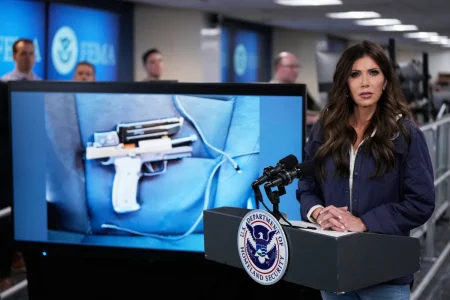Over a three-and-a-half-month period, Trader Joe’s, a popular grocery chain serving a significant portion of American consumers, faced multiple product recalls due to potential bacterial contamination, highlighting the complexities and vulnerabilities of the modern food supply chain. The recalls, impacting a range of products from carrots and waffles to meat, poultry, and green onions, underscored the importance of robust safety protocols and rapid response mechanisms to protect public health. While one recall was later rescinded due to a laboratory error, the others prompted investigations by federal agencies and raised concerns about potential illnesses.
The first recall involved organic whole and baby carrots supplied by Grimmway Farms, impacting numerous brands, including Trader Joe’s. These carrots were recalled due to potential contamination with Escherichia coli (E. coli), a bacteria that can cause severe infections, particularly in vulnerable populations. An outbreak linked to these carrots resulted in illnesses, hospitalizations, and one reported death, prompting a multi-state investigation by the FDA and CDC. While Grimmway Farms maintained that no product tested positive for E. coli, the outbreak underscored the potential severity of bacterial contamination in fresh produce.
A second recall focused on frozen waffle and pancake products supplied by TreeHouse Foods to Trader Joe’s. These products were recalled due to potential contamination with Listeria monocytogenes, a bacteria that can cause listeriosis, a serious infection particularly dangerous for pregnant women, newborns, older adults, and individuals with weakened immune systems. Listeriosis is a significant concern in food safety, representing a leading cause of death from foodborne illnesses in the U.S. Though TreeHouse Foods reported no confirmed illnesses linked to the recalled products and subsequently restored production after a hygienic restoration of their facility, the incident emphasized the need for stringent quality control throughout the production process.
The third recall involved a substantial quantity of ready-to-eat meat and poultry products supplied by BrucePac and sold at Trader Joe’s. This large-scale recall was also triggered by potential Listeria monocytogenes contamination. Ready-to-eat products, often consumed without further cooking, pose a higher risk of transmitting foodborne illnesses if contaminated. The widespread nature of this recall and the variety of Trader Joe’s products affected, including salads and enchiladas, demonstrated the potential for contamination to spread across a range of product lines.
A fourth recall, initially involving green onions supplied by Church Brothers Farms and sold by Trader Joe’s and other brands, highlighted the crucial role of accurate testing and communication in food safety. The green onions were recalled due to suspected Salmonella contamination, a bacteria that can cause a range of illnesses, from mild to severe. However, subsequent investigations revealed a laboratory error, leading to the recall’s rescission. This incident underscores the importance of rigorous testing protocols and the potential consequences of inaccurate results, including unnecessary product withdrawals and public concern.
These series of recalls affecting Trader Joe’s products, while unfortunate, served as a reminder of the continuous vigilance required to ensure food safety. From farm to processing plant to grocery store shelves, multiple points of potential contamination exist. The recalls highlight the crucial role of regulatory bodies like the FDA, CDC, and FSIS in identifying and responding to potential threats. They also underscore the importance of communication and transparency throughout the food supply chain, enabling swift action to protect consumer health. Finally, the incidents emphasize the importance of preventive measures and continuous improvement in food safety practices by producers, processors, and retailers alike, to minimize the risk of contamination and safeguard public health. The fact that one recall was rescinded due to a lab error reinforces the need for constant scrutiny and verification throughout the testing process, as inaccuracies can lead to both economic losses and unwarranted consumer alarm.














